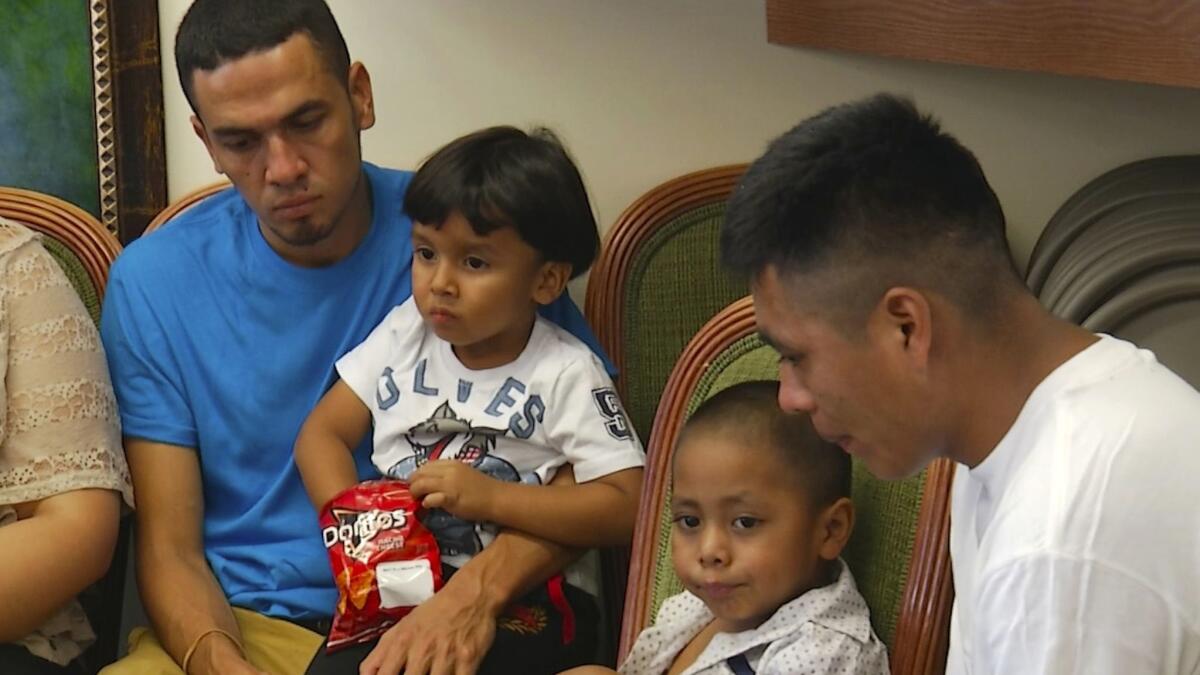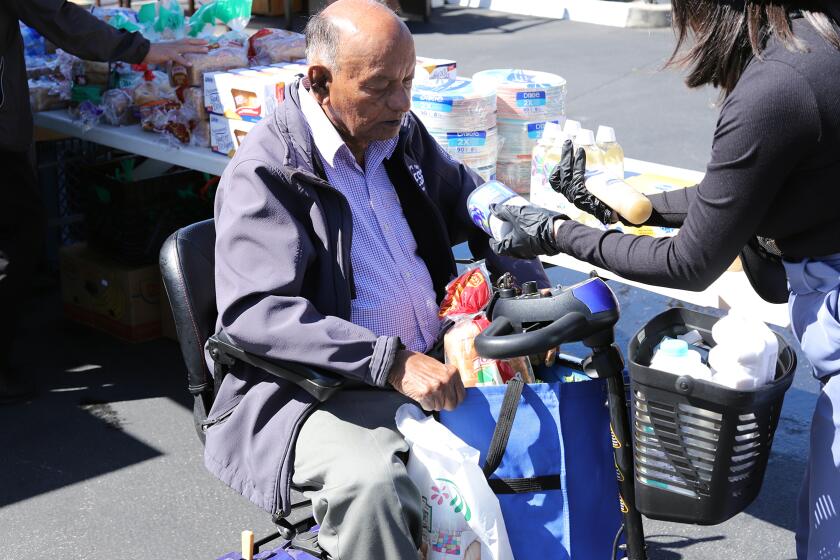Letters to the Editor: Immigrants want what we have: the American Dream

Re: “Border walls might be an unfortunate reality but they are a necessity,” (July 2). Who would have thought that the ongoing tumult over immigration and border security could serve as a prism for taking a broader look at the American Dream?
The most interesting part of Juli Hayden’s commentary is not her thoughts regarding immigration, calls for border security or her perception that fleeing Central American migrants are an imminent threat. After all, we’ve heard all that before.
What’s most telling is her outlook: her hopes, her dreams and ultimately her resignation. In her commentary she seems to both hope for a “perfect world,” yet is sadly resigned to settling for “an unfortunate reality.”
Her perspective is striking because it provides a vivid picture illustrating the current psyche of Americans and, more broadly, their apparent abandonment of the American Dream.
Everyone has dreams, and many dream of a perfect world, but most learn at an early age that the perfect world doesn’t just happen. Traditionally, American parents teach children to work hard and encourage them to overcome obstacles standing between them and their perfect world.
It was this thinking that defined many generations of Americans and served as the underpinning for what most understand to be the “American Dream.” This ethic powered the belief that anything was possible, and that one’s world could be just as perfect as you chose to make it.
And while Ms. Hayden laments about the difficulties of accepting a situation she finds troubling and far from ideal, it is ironic that her concerns appear to stem from the plight of those who have chosen to actively embrace a traditional American ethos. Right now, the torchbearers for the American Dream are those fighting to simply make it to America.
The people Ms. Hayden believes must be stopped are coming from a world dominated by violence. A world where parents believe the best chance — perhaps the only chance — for their children is to flee. Imagine for a moment the level of desperation required for a parent — any parent — to believe that leaving behind everything and everyone they know is the best option; that exposing themselves and their children to a perilous 2,500 mile journey through unknown lands rife with danger is actually their child’s best chance to survive beyond their teens.
If anyone was to give this even the briefest of consideration they would come to understand these migrants will not be deterred, not by a wall, not by extra border security, not even by an overtly cruel and deeply evil policy that might separate them from their children. They are determined to overcome all obstacles in search of a perfect world.
So, while today’s Central American migrants are risking everything, and past generations of Americans risked everything by fighting two world wars, overcoming the Great Depression and leading the new world order, why are today’s Americans resigned to settling for far-off dreams and warm memories of a past that no longer exists?
The passive acceptance of a world perceived as “less-than” sadly shows an all-too-common willingness by an entire generation to simply raise the white flag and surrender their hopes and dreams.
If you wish to live in a “perfect world,” it doesn’t just happen.
There is nothing more human than to dream, but a dream without constructive action is little more than a wish.
Steve Shepherd
Huntington Beach
Administration is making the world far less perfect
If I lived in a perfect world, I wouldn’t have to put up with a megalomaniac as president who has billion dollar delusions that would need to be funded or born by the American taxpayers. If I lived in a perfect world, I wouldn’t have to put up with a venal, incompetent, anti-community administration that makes the bumbling of George W. Bush look almost benign.
If I lived in a perfect world, I wouldn’t have to worry about justice and the rule of law being victimized at every turn by majorities of one party controlling all three branches of government that are heartless, insensitive and arrogant.
In her commentary, Juli Hayden concludes: “My prayer is that the American people, through our system of government, will wake up and protect our country from those officials and groups who would undermine and steal our future.” She adds at the end, “What say you?”
I would like to agree with Ms. Hayden about her prayer, although I am sure not in the way she intended. It seems that facts, truth, reason, common sense and compassion have been kicked to the curb by a sizable slice of the electorate who only care about winning and getting their own way.
The needs, cares and concerns of even the majority of our citizens are inconsequential and subservient to this rabble-rousing crowd who are mesmerized by their own Svengali. Our “future posterity” depends upon ridding our body politic of such a threat to our society.
Tim Geddes
Huntington Beach
Clooney proves helmets save lives
It is said that speed kills, but that prudence and a will to survive can dissuade the Grim Reaper from doing his thing. Case in point: the simple wearing of a helmet when riding a motorcycle. George Clooney was doing an estimated 60 mph on a scooter in Olbia, Italy, when he collided head-on with a Mercedes. Not only did his helmet shatter the windshield, but the helmet itself cracked. If ever there was a positive reinforcement for mandatory helmet laws, this is it.
Bill Spitalnick
Newport Beach
How to get published: Email us at dailypilot@latimes.com. All correspondence must include full name, hometown and phone number (for verification purposes). The Pilot reserves the right to edit all submissions for clarity and length.
How to get published: Email us at dailypilot@latimes.com. All correspondence must include full name, hometown and phone number (for verification purposes). The Pilot reserves the right to edit all submissions for clarity and length.
All the latest on Orange County from Orange County.
Get our free TimesOC newsletter.
You may occasionally receive promotional content from the Daily Pilot.



